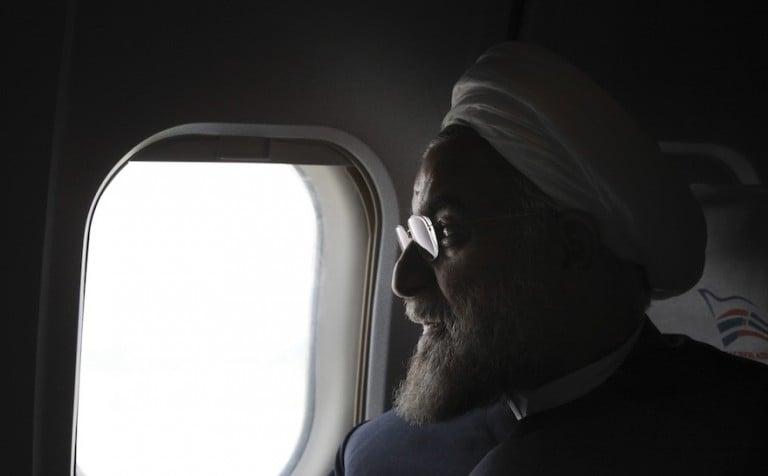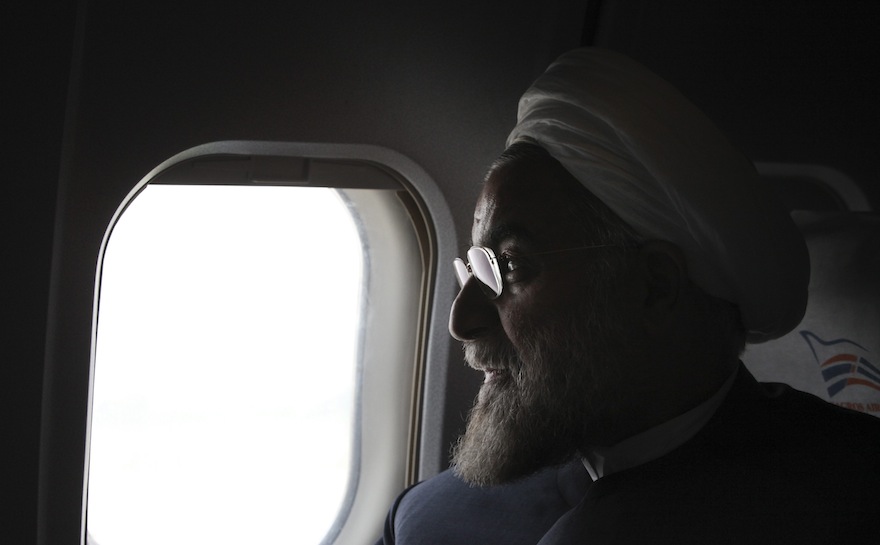The deal with Iran tackles its nukes. It ignores everything else.
Michael Petrou on the West’s framework nuclear deal, why it’s a half-measure, and why it likely won’t mean more freedoms for Iranians

Hassan Rouhani, the president of Iran and a former top nuclear negotiator. (AP Photo/Vahid Salemi, File)
Share

Iran is not dangerous because it is a threshold nuclear power — at least not exclusively so. It is dangerous because it is an undemocratic, terrorism-sponsoring theocracy that props up Syrian dictator and mass murderer Bashar al-Assad, and whose leaders jail people because they don’t like their Facebook posts.
The framework nuclear deal Iran has signed with the five permanent members of the UN Security Council, plus Germany—a formal deal must now be signed before a July 1 deadline—addresses the threat posed by Iran’s nuclear program, but ignores everything else.
The deal, in broad terms, seeks to curtail Iran’s nuclear capabilities in exchange for relief from international sanctions that have crippled its economy. Analysts differ over just how hamstrung Iran’s nuclear program will be. U.S. President Barack Obama says Iran’s “breakout” time—how long it will take to build a nuclear weapon should it decide to do so—will stretch from a few months to a year or longer, though he concedes that after 13 years, when some restrictions are phased out, the breakout time will shrink to almost nothing.
Related: America’s dangerous liaisons: Asking Iran to be a friend
No deal—or bombing campaign, for that matter—could destroy the knowledge of Iranian government scientists. It was therefore never really possible to completely eliminate the risk that Iran might one day get the bomb. This deal, if formalized, might be the most that could have been achieved at the negotiating table. And the alternatives were not great. It’s far from certain that international sanctions could have been tightened or indefinitely maintained. Bombing Iran, at best, would have obtained only limited objectives temporarily, and Iran would probably have raced to build a bomb to give it deterrence.
But even if this current deal is a “good” one, as Obama insists, its official scope is limited. It doesn’t deal with the nature of the Iranian regime. But that’s where its true impact may be felt.
The pessimist’s view is that this deal will legitimize Iran’s oppressive theocracy in the eyes of some Iranians. It will certainly provide the regime with a lot of revenue, which it can use to buy the loyalty of Iranian citizens though public spending—in addition to bankrolling proxies like Assad and militias throughout the Middle East.
Others—and this includes some Iranians opposed to the Islamic Republic—believe a détente with the West will bring internal changes to Iran by empowering the relative moderates within its political elite who advocated negotiation in the first place.
I think the Islamic Republic itself has been strengthened. A revolution of the sort that might upturn the entire political system now seems less likely. I’m also not confident that a softening in relations with the West will result in more freedom for ordinary Iranians.
Iran has had a government that is more open to the West for almost two years, since the election of President Hassan Rouhani. In that time, hundreds of Iranians have been executed—just as they were during the presidency of the hardline Mahmoud Ahmadinejad. Mir-Hossein Mousavi and Mehdi Karroubi, former presidential candidates who ran against Ahmadinejad in 2009, remain under house arrest. Social media was aflutter in September 2013 when Iran’s new foreign minister, Javad Zarif, took to Twitter to wish Jews a happy Rosh Hashanah. But most Iranians are not permitted to use Twitter in the first place.
Related: Can Tehran be trusted?
I hope to be proven wrong. Iranians have struggled and died for democracy. Few would complain if they get it through reform rather than revolution. And I wouldn’t much worry about a liberal and democratic Iran that has the ability to easily make a nuclear bomb. Iran’s government is its biggest problem, not the weapons in its arsenal.